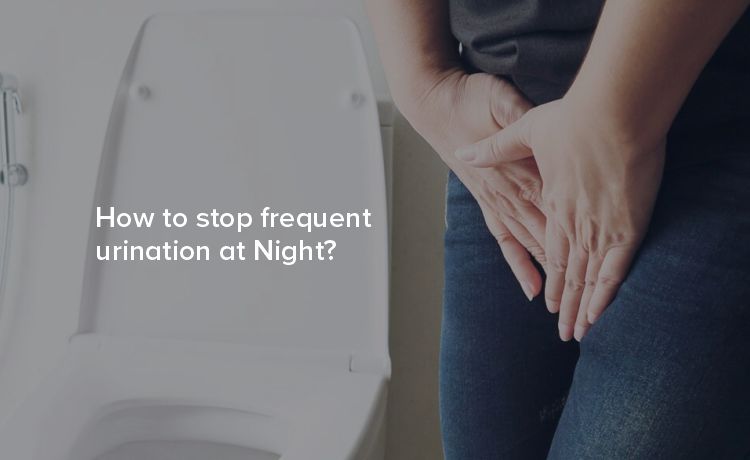
Waking up multiple times a night to use the bathroom can be frustrating and exhausting. If frequent nighttime urination (nocturia) is disrupting your sleep, you're not alone. Many people experience this issue, which can significantly impact their quality of life.
Nocturia is a condition characterized by waking up during the night to urinate. It's common among adults, particularly as they age. While it can be a minor inconvenience for some, it can severely disrupt sleep for others, leading to daytime fatigue and other health issues.
Several factors can contribute to nocturia:
Aging: The body's ability to concentrate urine decreases with age, increasing nighttime urine production.
Medical conditions: Conditions such as diabetes, heart disease, and sleep disorders can lead to nocturia.
Medications: Some medications, including diuretics, can increase urine production.
Lifestyle factors: Excessive fluid intake before bedtime and consumption of caffeine or alcohol can exacerbate nocturia.
Nocturia can lead to sleep deprivation, affecting overall well-being. It can cause fatigue, mood changes, and decreased cognitive function. Addressing this issue is essential for maintaining good health and quality of life.
One of the first steps in managing nocturia is understanding your patterns. Keeping a bladder diary can help identify potential triggers and patterns in your urination habits.
Fluid intake: Note the type and amount of fluids consumed throughout the day and evening.
Urination frequency: Record the number of times you urinate and amount of urine during the day and night.
Medications: List any medications or supplements you are taking.
Symptoms: Note any symptoms such as urgency, pain, or discomfort.
Reviewing your bladder diary with a healthcare professional can help identify potential causes and develop a personalized management plan.
Managing fluid intake is crucial in reducing nighttime urination. Making small changes to when and how much you drink can significantly impact your nocturia symptoms.
Avoid excessive fluids in the evening: Try to limit fluid intake a few hours before bedtime.
Distribute fluids evenly: Drink fluids consistently throughout the day to avoid overloading the bladder in the evening.
Limit caffeine and alcohol: Both can increase urine production and irritate the bladder.
Opt for water: Water is the best choice for hydration. Avoid sugary drinks and beverages with artificial sweeteners.
Improve Sleep Hygiene: Good sleep hygiene can help improve overall sleep quality and reduce the impact of nocturia.
Establish a Routine
Consistent bedtime: Go to bed and wake up at the same time every day
Comfortable bedding: Ensure your mattress and pillows provide adequate support.
Dark, quiet room: Use blackout curtains and white noise machines to create a peaceful sleep environment.
Limit screen time: Avoid electronic devices at least an hour before bedtime, as the blue light can disrupt sleep.
Addressing underlying medical conditions can significantly reduce nocturia symptoms. Working with a healthcare provider to manage these conditions is crucial.
Diabetes Management
Blood sugar control: Keeping blood sugar levels within the target range can help reduce excessive urine production.
Regular check-ups: Regular visits to a healthcare provider can help monitor and adjust diabetes management plans.
Heart Health
Monitor fluid retention: Conditions such as heart failure can lead to fluid buildup, increasing nighttime urination.
Medication adjustments: Work with a healthcare provider to manage heart-related conditions and medications.
Pelvic Floor Exercises
Strengthening the muscles of the pelvic floor can help improve bladder control.
Kegel Exercises
Identify the right muscles: Contract the muscles used to stop urine flow.
Practice regularly: Aim for three sets of 10 repetitions daily.
Benefits
Improved bladder control: Stronger pelvic floor muscles can help reduce urgency.
Enhanced overall health: Pelvic floor exercises can also benefit sexual health and core stability.
Making dietary changes can help manage nocturia by reducing bladder irritation and promoting overall health.
Bladder-Friendly Foods
Fiber-rich foods: Include fruits, vegetables, and whole grains to promote digestive health and reduce bladder pressure.
Lean proteins: Opt for lean meats, fish, and plant-based proteins.
Foods to Avoid
Spicy foods: These can irritate the bladder.
Behavioral therapies can help manage nocturia by training the bladder and improving overall bladder control.
Scheduled voiding: Gradually increase the time between bathroom visits to train the bladder to hold more urine.
Urgency suppression: Practice techniques to delay urination, such as deep breathing and relaxation.
Stress management: CBT can help address anxiety and stress that may contribute to nocturia.
Sleep improvement: CBT for insomnia (CBT-I) can improve sleep quality and reduce nighttime awakenings.
In some cases, medical treatments may be necessary to manage nocturia effectively.
Surgical Options - Depends on the age to age and different conditions.
If lifestyle changes and self-management strategies do not improve your nocturia, consulting a healthcare provider is essential.
Managing nocturia and reducing nighttime urination can significantly improve your quality of life. By understanding the causes, making lifestyle adjustments, and seeking appropriate medical care, you can enjoy uninterrupted nights of restful sleep. Contact Citizens Specialty Hospital for the blood in urine treatment in Hyderabad.